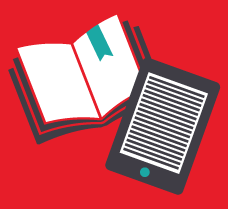Check out our other guides!
 The Summer Academy for Math and Science (SAMS) is a 4-week program that provides opportunities for students from underrepresented communities to explore STEM-related fields. This year’s program will be in-person, with admitted participants staying in residence halls at CMU throughout July.
The Summer Academy for Math and Science (SAMS) is a 4-week program that provides opportunities for students from underrepresented communities to explore STEM-related fields. This year’s program will be in-person, with admitted participants staying in residence halls at CMU throughout July.
Requirements: 1 essay of 300-500 words, 1 essay of up to 1,000 words
Deadline: March 1, 2024
This prompt is a straightforward classic in the admissions game. In other words: Why are you applying? What do you hope to get out of your SAMS experience? We recommend starting with a piece of paper (if you’re old school) or a blank document and writing down everything that comes to mind. Don’t worry about editing; you can do that later. Next, go to CMU’s webpage for the SAMS program and do your due diligence to find out what you can expect. The more information you can incorporate into your response, the more specific and authentic your essay will be. Show admissions you’re a serious applicant making moves to achieve your dreams (and SAMS is a part of your journey).
Because SAMS is facilitated by the Center for Student Diversity & Inclusion, this prompt wants you to explore both your academic passion and your commitment to DEIB. Building on your answer to the prior question, think about what passion project you might want to pursue this summer. If you have more than one idea, jot them all down. Then, think about how these projects might further DEIB efforts. How will your passion project benefit you and others? Maybe you want to build an app that identifies and promotes Black-owned businesses, boosting minority-owned businesses in your area while improving your programming skills. Perhaps you plan to design an AI-powered tool that can help diagnose dementia, decreasing doctor visits and medical costs for lower-income seniors. You can also talk about how working in the diverse cohort of SAMS students will help expand everyone’s perspectives and inform everyone’s projects. Broadening your scope further, think about how SAMS creates a space for diverse students to pursue their own passions. How does it benefit academia and society at large to foster diverse voices in STEM?
The good news is, since you have up to 1,000 words to work with, you have the space to dive deep into your responses to each facet of the prompt. A successful essay will address all these points and offer admissions a clear understanding of what’s important to you, what you’re working toward, and how you will interact with students from different backgrounds.
This prompt asks you to dig deeper into your personal experiences. If a social inequity doesn’t immediately come to mind, start by listing out the communities to which you belong. This can include your family, school, racial group, gender expression, income level, sports team, choir, robotics club, fandom, or any other formal or informal group to which you belong. Going through your list, cast your memory back: Can you identify any social inequities that you witnessed or experienced as part of one of these communities? Maybe your parent missed your science fair because they couldn’t read the English signs to navigate your school, or perhaps you couldn’t join the orchestra because you couldn’t afford to rent a viola. Next, think about how your future work in STEM can address these inequities. Perhaps you can design a database for musicians to lend each other instruments or develop an interactive, multilingual campus map for parents and students. Your answer can include specific, individual inequities and solutions or larger-scale societal problems affecting your community. Make sure your essay highlights the benefits of college-level academics and how STEM can provide solutions for your community.